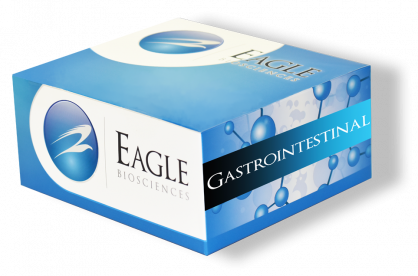CoproELISA C difficile GDH Assay Kit
The CoproELISA C difficile GDH Assay is For Research Use Only
Size: 1×96 wells
Sensitivity: Cut-Off Control
Incubation Time: < 2 hours
Sample Type: Stool
Sample Size: 0.1 to 0.3g
Alternative Name: Clostridium difficile glutamate dehydrogenase
Assay Principle
Break-apart microwells are coated with C. difficile GDH specific monoclonal antibodies. A horseradish peroxidase (HRP) conjugated monoclonal anti-GDH antibody is added to the antibody-coated microwells. Fecal samples are diluted in sample diluent and added to the microwells. In this step C. difficile GDH is marked by the HRP conjugated antibody and immobilized by the coated antibody. Unbound conjugate is removed by washing. TMB-substrate is added, the substrate is hydrolyzed by the peroxidase and yields a blue solution of the reduced substrate. Upon the addition of the stop solution, the blue color turns yellow and should be read by an ELISA reader at a wavelength of 450/620 nm. The absorbance is proportional to the level of C. difficile GDH in the sample.
Related Products
CoproELISA C. difficile Toxin A B Assay Kit
CoproELISA H Pylori Assay Kit


